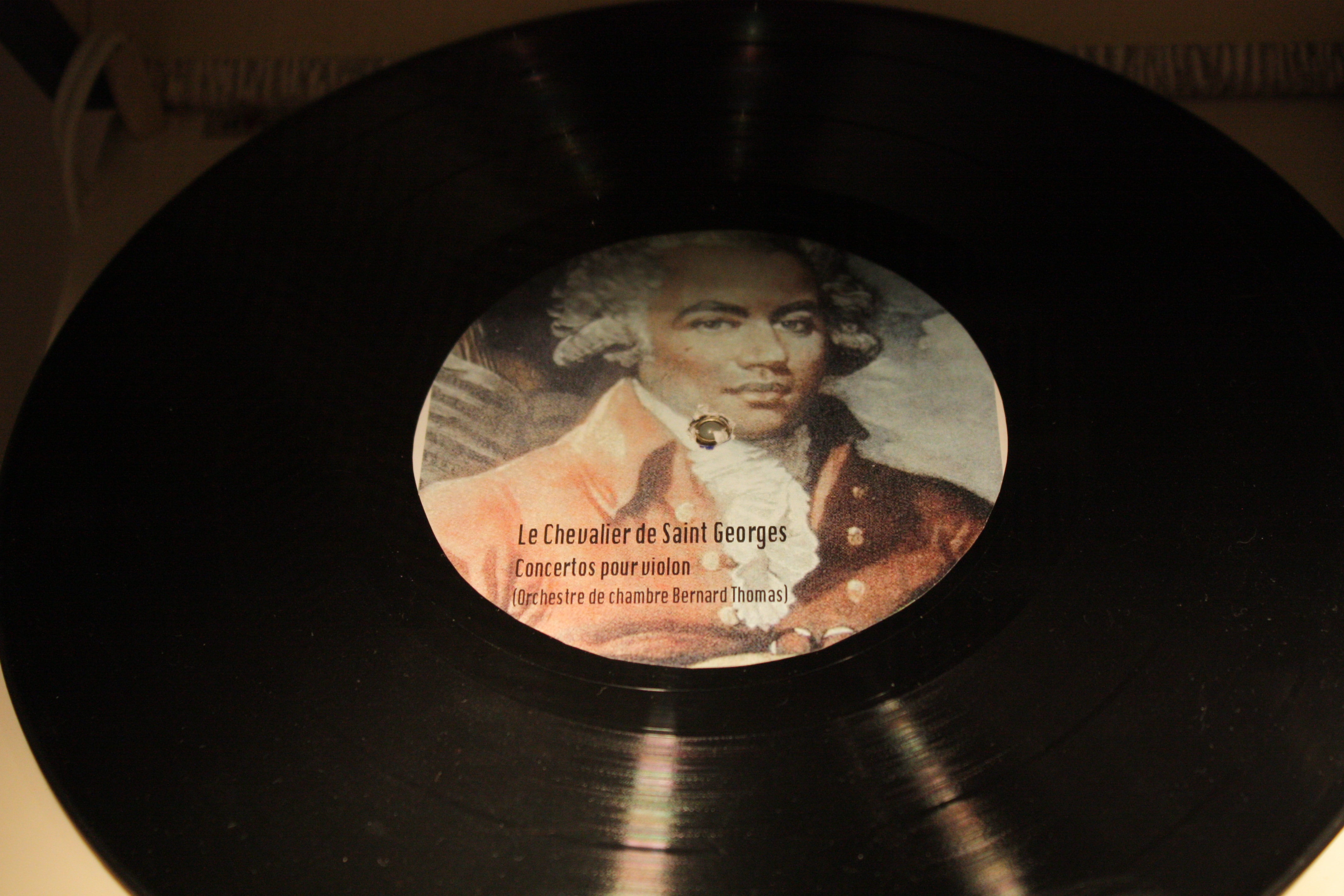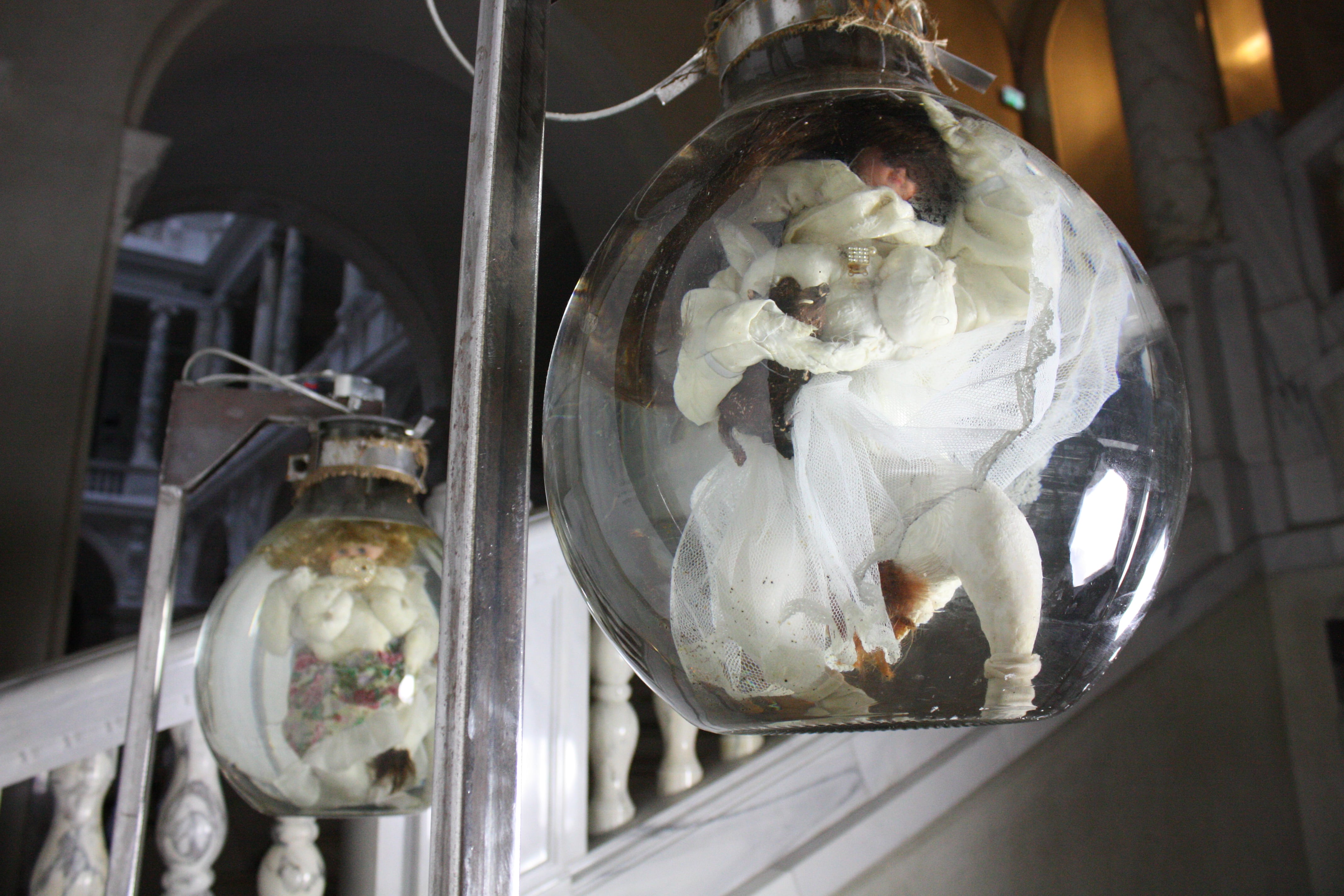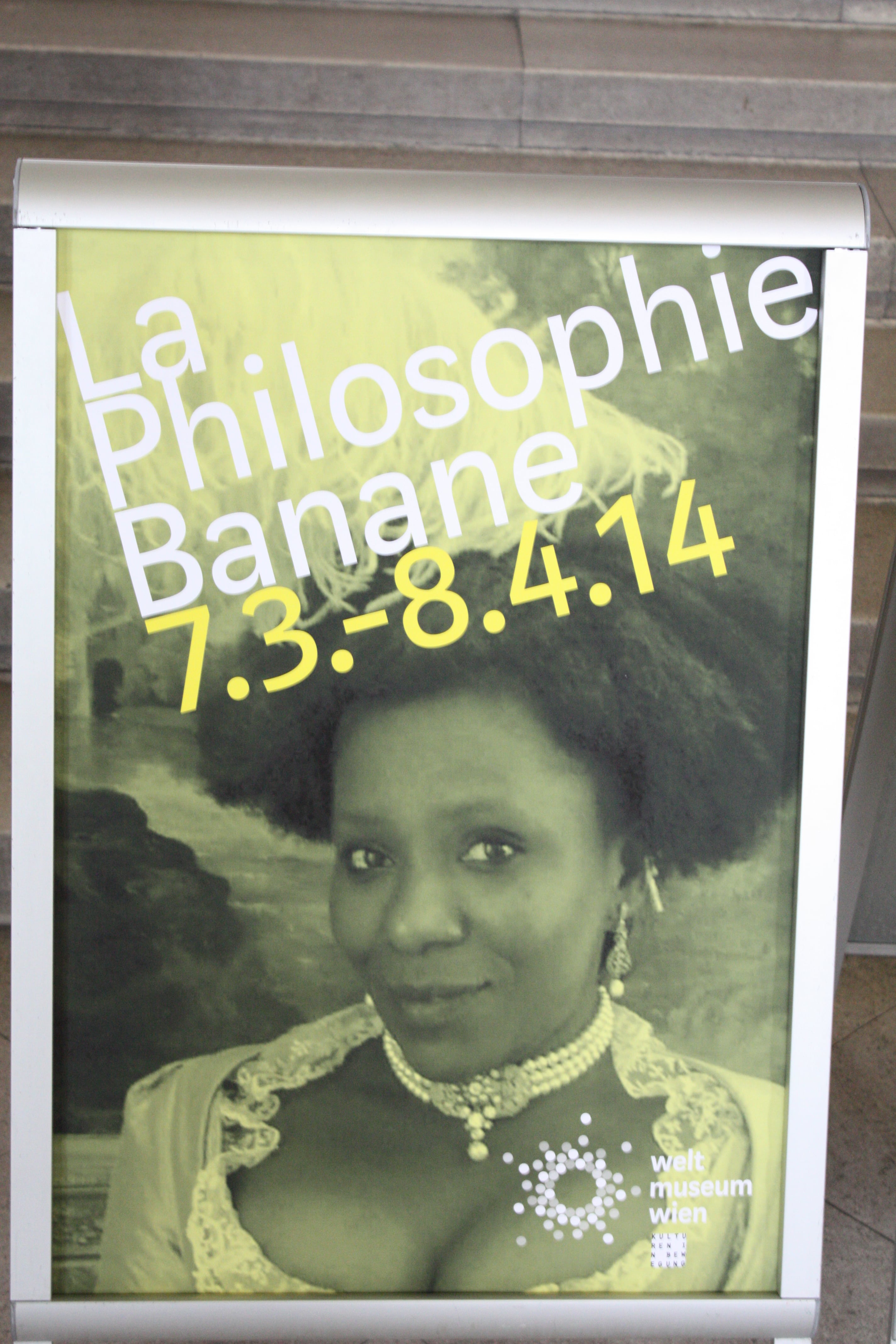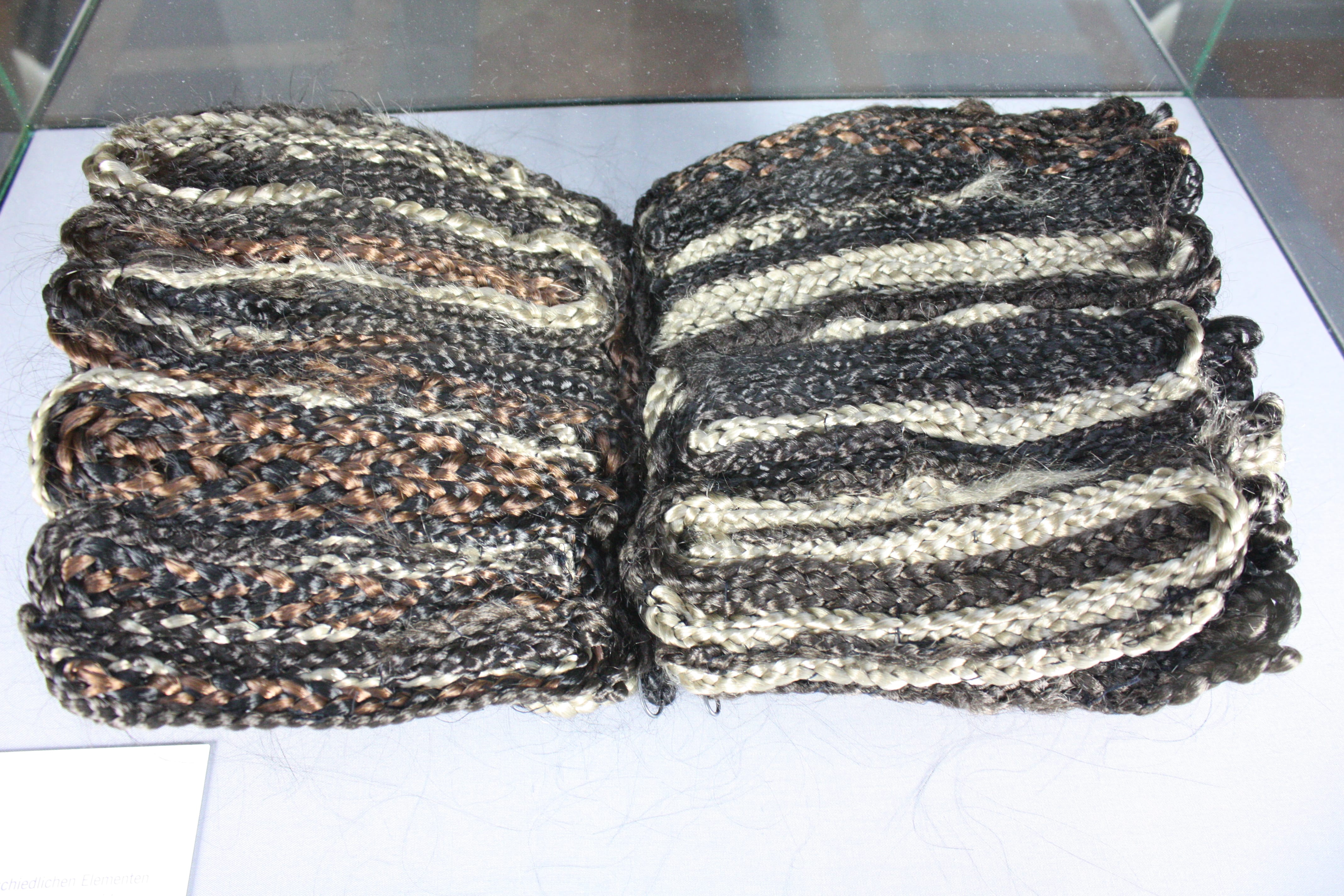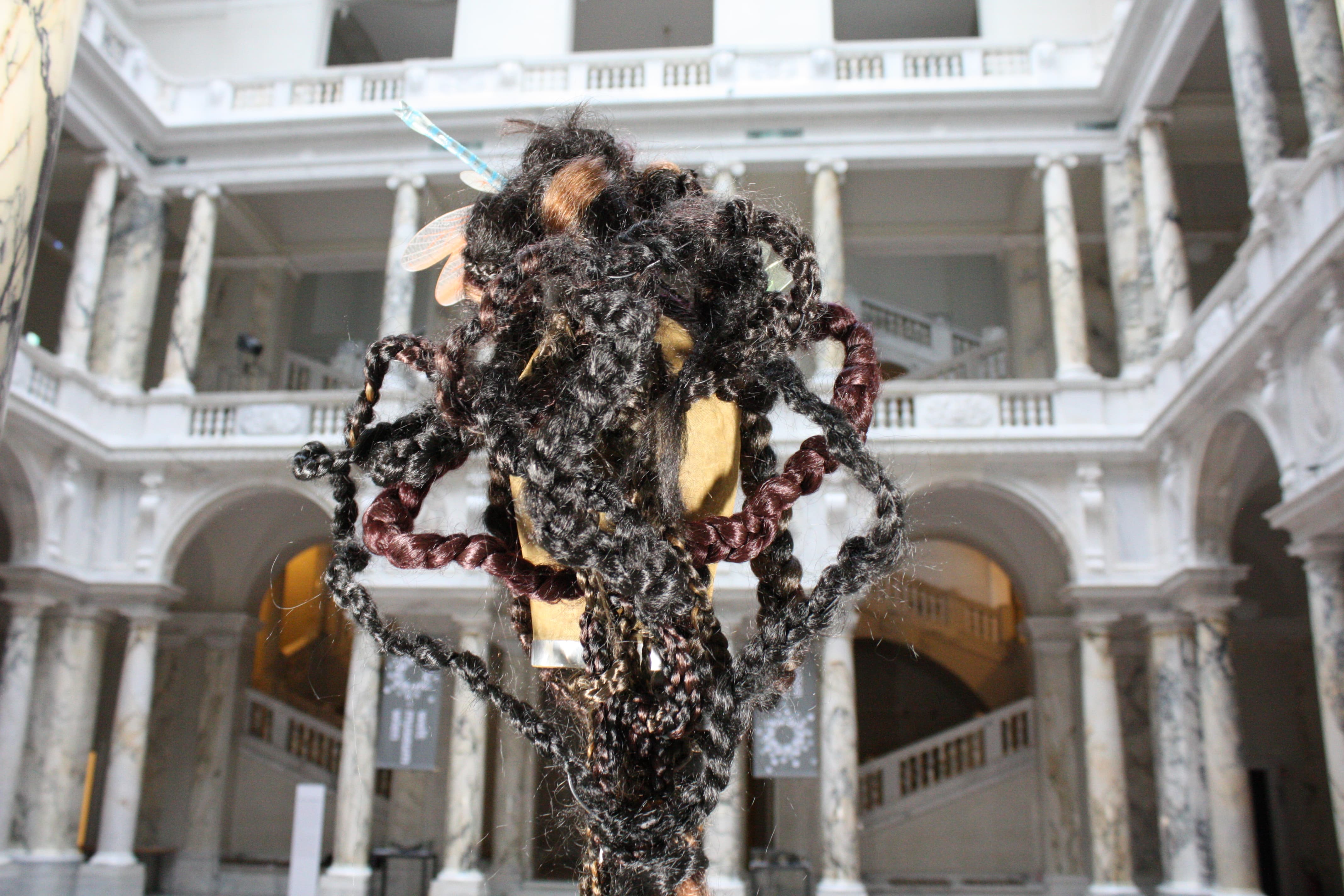Philosophie Banane (2014)
Fighting against invisibility, to call a spade a spade – these seem to me indispensable conditions for embracing our thoughts and our own existence. Reflections about the concept of collective/individual memory have always inspired my work. Due to the fact that I’ve been living in Austria for several years I am now able to stand back and take a closer look at myself for being Congolese, or more specifically a European Congolese. From a distance the former colonial power France – my other adopted country – might seem successful in achieving integration of the southern Sahara culture in daily life. But if one takes a closer look there is still a lot left to say about illusion and reality. In Austria though, the situation is quite different. The cultural difference is such that it allows me to rediscover what it is that makes me Congolese. The withdrawal from my personal history led me to a point from where I started to ask myself questions about identity and visibility.
How could one still study, teach and propagate a European history without including the presence of the black which is documented for at least the past 4000 years? There are some cases where migrants from Africa are so clearly and famously established in the European cultural history that no one would recognize them as Africans born in Africa or Africans born in Europe with one or both parents being African or African descendants who settled in Europe, such as Septimus Severus, Terentius, Saint Augustine, Alexandre Dumas, Alexander Puschkin etc. What is left to say about the invisibles that were pushed into the profound abyss of oblivion like Paulette Nardal, fighter for the black rights, inspiration for the literary movement Négritude and first black female at the Sorbonne? Or Suzanne Roussi, Aimé Césaire’s wife, author and founder of the magazine Tropique? It is a thin layer of legitimated, formalized remembrance which preserves society’s canonical memory and masks this abyss of oblivion. The consequences of this black hole in the collective memory are dramatic sometimes: e.g. the black phenotype is “naturally” associated with an origin outside Europe. In other words, it is associated with a recent presence (of course in correlation with immigration). Or the black people or descendants of Africans living in Europe for generations who are turned down flat condescendingly at film- and theater castings: “We don’t have a job for you – there were no black people in medieval Europe!” or “For black people there is only the slave’s part in a period movie about Louis XIV.”
But why does this partial historical amnesia occur? The historian Kate Lowe* found the appropriate answer of unprecedentedly perfect sincerity: the traces of black Africans of the 15th and 16th century can be found in nearly all archives throughout Europe. Thus the reason for their invisibility lies somewhere else: in the realization of national policies, in the still noticeable consequences of the European colonization and in the tight corset of a specific historical education. La Philosophie Banane tries to desecrate history’s legends. The anachronistic association of philosophy and bananas appears like a trap that allows us to question our own connection with history. La Philosophie Banane contributes to a restoration of history’s torn pages (regarding the paradox that written pages are not meant to be torn out of a book), an initiation of archaeological excavation to exhume the personalities which have been erased from the memory in the course of time. La Philosophie Banane perforates the continuum of predictability and the explorations, which might disturb the ordinary way of the world. It peels off the ostensible truth-hiding layer to free this truth. In the course it reveals certain fragility and a tendency to break off and to get dark easily just like the banana’s pulp. La Philosophie Banane is a weapon used to kill the intellectual disaster. It is the expression of an absolutely necessary vigilance which is needed to neutralize all appearances of this disaster. This exhibition offers to create new forms of thinking and writing concerning history. It tries to bring the invisibles, who were devoured by the West, to light. Against the background of a merry and positive remembrance it questions the existing historiography in an amusing way in order to exhume some corpses out of purportedly locked closets.
Elisabeth Bakambamba Tambwe Vienna, February 2014
(*) Black Africans in Renaissance Europe, K. J. P. Lowe, Cambridge University Press
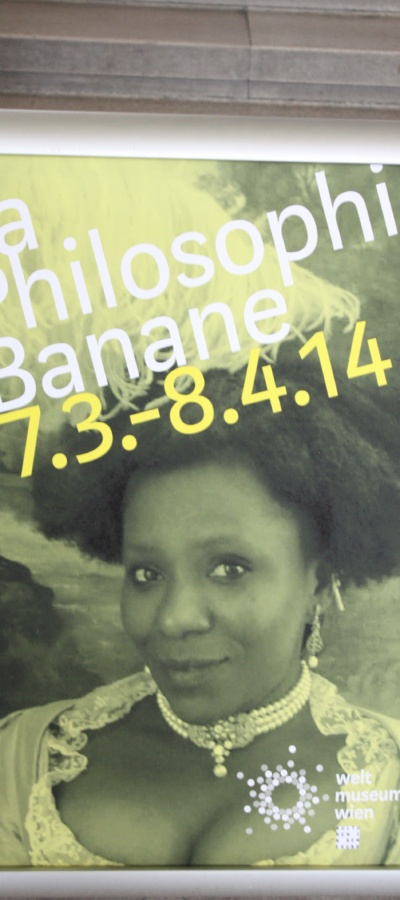
External links
Dates and places
Videos
Charlie & The Angels, installation, poulets et dinde, formol, verre, métal, 2014
The Dressing, vidéo, 12 mns 52 s., 2009
The Barbie Chicken, vidéo/photographies, son, 3 mns 25 s., 2009
Le passeport de l’aristo, vidéo, 2012
Les dessous de la reine, vidéo, électrophone, disques, 2012
Cleaner than clean/Kills flying & crawling Insects Installation, Terracotta, metal, 2012
Poésie objective#2 , The Writing Process Installation, metal, synthetic hair, cardboard 2014
Poésie Objective #2 de l ́oral á l ́écrit Installation, bamboo, synthetic hair, 2014
